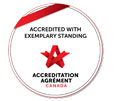Alcohol Withdrawal: Causes, Symptoms, Timeline & Treatment

A person may notice initial symptoms after a few hours that could last for up to a week or longer. People with alcohol use disorder should be monitored by a medical professional when withdrawing from alcohol. Moderate to heavy drinkers can also benefit from medical supervision in the acute withdrawal stage. When someone drinks alcohol https://ecosoberhouse.com/article/marijuana-addiction-how-addictive-is-weed/ for a prolonged period of time and then stops, the body reacts to its absence. This is alcohol withdrawal, and it causes uncomfortable physical and emotional symptoms. Still, it’s always best to quit alcohol with the help of experienced detox specialists, like our team at Clear Life Recovery’s alcohol detox in Costa Mesa.
- The kinds of withdrawal symptoms you experience will depend on the substance you were dependent on.
- A fixed daily dose of benzodiazepines is administered in four divided doses.
- People who experience severe withdrawal symptoms or DTs may require hospitalization or intensive care unit (ICU) treatment during alcohol.
- However, if symptoms worsen, it is advisable to seek immediate medical attention so that individuals receive appropriate treatment.
Administration period and median amount of the benzodiazepine chlordiazepoxide administered over the course of alcohol withdrawal to patients undergoing a symptom-triggered or fixed-schedule dosing regimen. Before initiating any interventions, the first step in managing a patient’s withdrawal is to assess thoroughly the patient’s condition. This assessment should include an evaluation of the presence of coexisting medical and psychiatric conditions, the severity of the withdrawal symptoms, and the risk of withdrawal complications. Historically, several mechanisms have been suggested to play a role in the development (i.e., etiology) of AW. More severe withdrawal symptoms are common in the first few hours of withdrawal. Stage two starts after 24 hours have passed from the last time you took a drink of alcohol.
Risks and Complications
Alcohol is the common name for drinking alcohol, but it’s actually a specific chemical in a broad category of chemicals called alcohol. It is produced naturally through the breaking down of sugars in plants and fruit. Alcohol can manipulate chemicals in your brain to create psychoactive effects. In addition to the sober individuals, many people among the remaining two-thirds are also drinking less and experiencing fewer alcohol-related health problems after one year. If you have any of these risk factors, it’s important that you withdraw from alcohol at a medical facility that’s equipped to prevent and treat alcohol-related complications.
Patients having seizures also need urgent treatment with a benzodiazepine to reduce the likelihood of further seizures. The diagnosis requires adequate history of the amount and frequency of alcohol intake, the temporal relation between cessation (or reduction) of alcohol intake and the onset of symptoms that may resemble a withdrawal state. When the onset of why does alcohol withdrawal cause seizures withdrawal like symptoms or delirium is after 2 weeks of complete cessation of alcohol, the diagnosis of alcohol withdrawal syndrome or DT becomes untenable, regardless of frequent or heavy use of alcohol. Table 2 gives a clinical description of alcohol withdrawal syndrome by severity and syndromes.[4,5,6] Figure 2 depicts the time course of symptom evolution.
Continued Support
This is especially important in elderly patients and those with hepatic dysfunction. The Kindling Effect refers to the phenomenon where each successive withdrawal from alcohol becomes more severe than the previous one, even if the alcohol consumption levels remain consistent. This is because the brain becomes more sensitive to the effects of alcohol withdrawal over time. For individuals with a history of multiple detox attempts, this can result in increasingly intense and dangerous withdrawal symptoms, including a higher risk of having an alcohol withdrawal seizure. At Journey Hillside, we’re acutely aware of the Kindling Effect and tailor our detox protocols to ensure the safety and well-being of those in our care.

Alcohol seizures are serious, so detox should never be attempted without medical support. But then, on day 3 or 4, sudden severe withdrawal symptoms might emerge. Kindling is a term describing a neurological phenomenon that makes alcohol withdrawal symptoms worse after previous withdrawals from depressant drugs. People who go through depressant withdrawal can have more severe symptoms with subsequent withdrawal periods. This higher risk of severe withdrawal symptoms can happen even if you’ve used different kinds of central nervous symptom depressants. For instance, if you’ve gone through benzodiazepine withdrawal, you may experience severe withdrawal when going through alcohol withdrawal and vice versa.



